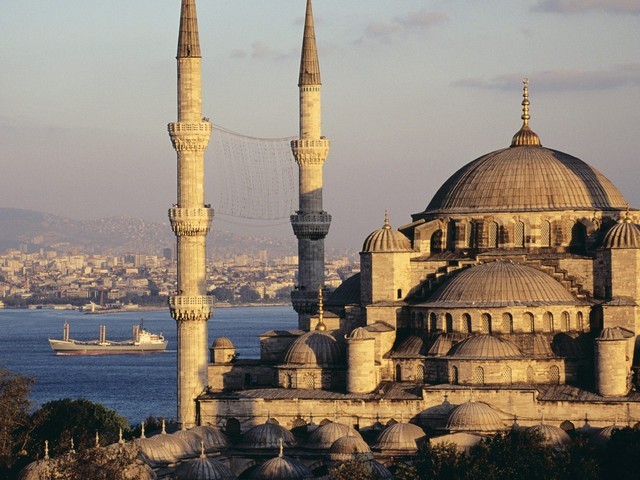 I’m sitting at the Ciragan Palace’s glass-filled halls on the banks of the Bosporus. I have joined the UN Security Council’s annual retreat, organised by the Turkish government, to give my view on what the UN did right and wrong in the Balkans from the break-up of Yugoslavia.
I’m sitting at the Ciragan Palace’s glass-filled halls on the banks of the Bosporus. I have joined the UN Security Council’s annual retreat, organised by the Turkish government, to give my view on what the UN did right and wrong in the Balkans from the break-up of Yugoslavia.
The retreat is meant to continue the Council’s discussion on the overlap between peacekeeping, peacemaking and peace-building. No immediate action will follow the retreat, but the discussion may lead into a more concrete phase during Turkey’s presidency in September.
Being here in Istanbul, however, has given me a chance to find an answer to the debate that has sprung up about Turkish government: is it really moving away from the West, like The Spectator argued a few issues ago, or is it merely trying to find its place in the post-Cold War world, as Philip Stevens wrote in the Financial Times?
I admit that I have for a long time I believed in the latter. During the Cold War, Turkey’s threats came from the north (the Soviet Union) and the south (the Middle East); its opportunities, in turn, lay to the West (Nato). But after the end of the Cold War, the situation changed dramatically; the opportunities, both commercial and resource-wise, were now in the north and east while the NATO and the EU have not been able to address the risks coming from the south.
So in a way it would be an odd government that did not reorient itself from its Cold War ways. Turkish interests are plainly not the same as ours in the West. At the same time, the ideological hue of the AKP government, its battle against the pro-Western, pro-Israeli military, and a desire by Prime Minister Recip Erdogan to strut his stuff like a modern-day Gamal Abdel Nasser, are all important factors too.
Personalities matter as well. The talk here is of a rift between the Prime Minister and President Abdullah Gül, not just about the former’s desire to create an executive-style presidency for himself, but also over how to deal with the West. The role of Ahmet Davutoğlu, the country’s foreign minister, is also important; he has invested quite a lot of personal energy and prestige into the new direction of Turkish foreign policy, like the negotiations with Iran. People say that he has taken the failure to persuade the West to accept the Turkish-Brazilian deal with Iran as a personal insult.
So, why I am changing my view on Turkey? The government’s recent decisions look more than a mere adjustment of policy; they look like a real about-turn. The Turkish insistence of an UN-mandated investigation into Mavi Mara flotilla threatens to change, quite dramatically, the Turkish-Israel relationship.
But I still think that this is more about Turkey having to get used to its newfound power in a world where its interests are different than they were during the Cold War. Turkey is more powerful than it used to be, but it does not know how to use this power yet. Lots of people in power here still seem to want to be part of the West and remain oriented towards the West. And there are many bright spots. Links with Greece, for example, are said to be excellent these days. So I’m still hopeful about the continuation of good West-Turkey links. But the space needs watching. Now back to the Turkish coffee.






Comments